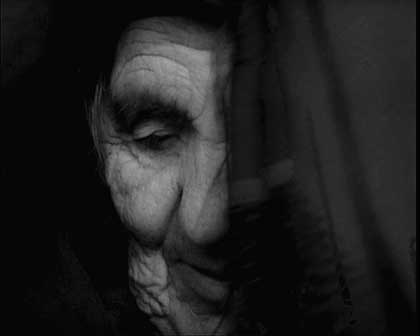Artavazd Peleschjan
dal 20/2/2004 al 28/3/2004
Segnalato da
20/2/2004
Artavazd Peleschjan
Ursula Blickle Stiftung, Kraichtal
Peleschjan's films are considered some of the most influential works of the Russian documentary cinema and were recognized and supported by Jean-Luc Godard back in the sixties. The 11-film oeuvre of this reclusive artist, who lives in Moscow, has, however, remained largely elusive, despite the fact that his works are shown at film festivals and that Peleschjan has since the nineties gained recognition in an art context.

Our Century
An Exhibition of the Ursula Blickle Foundation With a selection of three films, the Ursula Blickle Foundation is presenting for the first time in Germany the work of the Armenian filmmaker Artavazd Peleschjan (born in 1938), who reminiscent of a Dziga Vertov and Sergej Eisenstein has revived the avant-garde film tradition. Peleschjan's films are considered some of the most influential works of the Russian documentary cinema and were recognized and supported by Jean-Luc Godard back in the sixties. The 11-film oeuvre of this reclusive artist, who lives in Moscow, has, however, remained largely elusive, despite the fact that his works are shown at film festivals and that Peleschjan has since the nineties gained recognition in an art context. Recently, for example, Paul Virilio gave Peleschjan's longest work, "Our Century" (1982), a key role in the exhibition "Ce qui arrive" at the Paris Fondation Cartier. "Our Century" is a grandiose black and white epos about the dreams and nightmares of the progress of civilization in the twentieth century, a work that shows, as Hannah Arendt stated back in 1968, that progress and catastrophe are flip sides of a coin. At the center of it all is man caught in the oscillations of political, historical, and social change. "Seasons" (1972-75) gives a striking picture of everyday scenes in Armenia, life caught between progress and tradition, still marked by its dependence on and vulnerability to the forces of nature. The short film "Inhabitants" (1970) shows, partly through archival footage, partly through images from the filmmaker's own material, animals of the steppe fleeing from an unspecified but constant threat.
In Peleschjan's documentary films, which lie somewhere between poetry and quotidian life, image and sound converge into an imposing overall composition. Peleschjan applies an editing technique developed and described by himself as "contrapuntal editing," which permits tension-filled sequences and changes in images and incorporates the rhythmic power of music. "Confronted with two important shots, the carriers of meaning, I do not try to bring them together, nor to confront them, but rather to create a distance between them," says Artavazd Peleschjan. His imagery and approach to image are reflected in contemporary art. Accompanying the exhibition is a catalogue with a text by Constantin Wulff and texts by and interviews with Artavazd Peleschjan (by Jean-Luc Godard and François Niney among others) published here for the first time in both German and English.
Image:
Artavazd Peleschjan Filmstill aus: Die Jahreszeiten, 1972 (1975), s/w 28 min., Courtesy Artavazd Peleschjan
Kurator: Dr. Gerald Matt, Director of the Kunsthalle Wien
Press information: Valentina Dobrosavljevic, Tel. +49 721- 3 52 72 97, presse@ursula-blickle-stiftung.de
Preopening viewing: Please call for an appointment: Tel. +49 7251- 6 09 19 Fax +49 7251- 6 86 87
Press photos: Available on our website: www.ursula-blickle-stiftung.de
Catalogue: There will be a catalogue accompanying the exhibition
Duration of exhibition: February 22 - March 28, 2004
Opening: Saturday, February 21, 7:00 p.m. Speaker: Gerald Matt
Opening hours: Wed. 2:00 p.m. till 5:00 p.m., Sun. 2:00 p.m. till 6:00 p.m., and by appointment
Next venue: Kunsthalle Wien April 2 - 25, 2004
Ursula Blickle Stiftung
Mühlweg 18
D-76703 Kraichtal-Unteröwisheim
Phone +49 (0) 7251-60 91 9
Fax +49 (0) 7251-68 68 7



